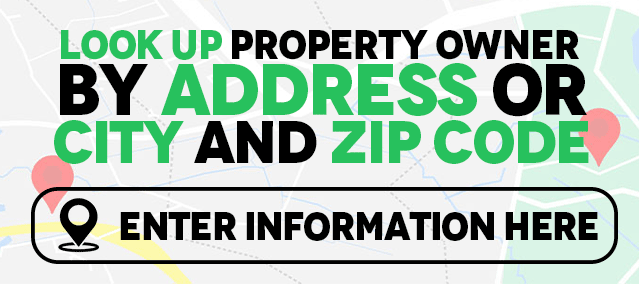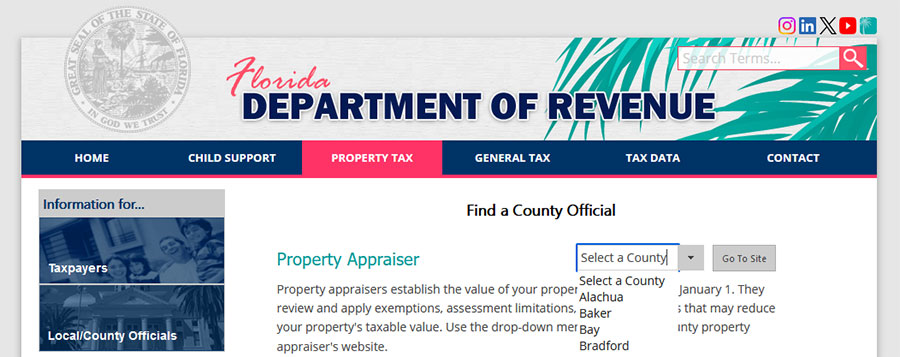
Are you curious to find out who owns a property in Florida? You’re not alone. Whether you’re looking to buy a new home in the Sunshine State, researching a potential investment property, or simply tracking down the owner of a property you admire, discovering the identity of a property owner can be a valuable piece of information.
In this article, we will unlock the secrets to finding out who owns a property in Florida. We will explore various methods and resources available to individuals seeking ownership information, ranging from online databases to public records and title documents. By following the steps outlined in this guide, you will gain the tools and knowledge to dig deep into property ownership details and uncover the insights you need.
Remember, while the process of uncovering property ownership information in Florida may seem complex, it is entirely legal and within your rights as a citizen. So, let’s dive in and uncover the secrets behind property ownership in the beautiful state of Florida.
Why would you want to find out who owns a property in Florida?
Knowing the owner of a property can be valuable information for a variety of reasons. Whether you’re a potential buyer, an investor, or simply a curious individual, understanding property ownership can provide valuable insights and help you make informed decisions.
For prospective home buyers, identifying the current owner of a property can give you a better understanding of the property’s history, any potential issues or encumbrances, and the owner’s motivations for selling. This information can be crucial in negotiating a fair price and ensuring a smooth transaction.
Investors, on the other hand, may want to research property ownership to identify potential investment opportunities, such as foreclosures or properties owned by absentee landlords. Knowing the owner’s identity can also help investors approach them directly and potentially negotiate favorable terms for a purchase or lease.

Additionally, individuals may simply be curious about the ownership of a property they’ve admired or are interested in for personal reasons. Satisfying this curiosity can provide valuable insights into the property’s history and the owner’s plans for the future.
Find out who owns a property in Florida using the website Who Owns This House

- Visit the website and enter the property’s address in the search bar.
- The system will retrieve information from its database.
- You can access detailed reports, including the owner’s name, property history, market value, and tax records.
Public records and online resources for property ownership information
In Florida, property ownership information is considered public record, which means that it is generally accessible to the general public. There are several resources available to individuals seeking to uncover property ownership details, ranging from online databases to physical records maintained by local government agencies.
One of the most comprehensive sources of property ownership information in Florida is the county property appraiser’s office. Each county in the state maintains detailed records on the ownership, value, and characteristics of properties within their jurisdiction. These records are typically available online, allowing you to search for and access information about specific properties with relative ease.
In addition to the county property appraiser’s website, there are also a number of online databases and third-party services that can provide property ownership information. These resources may include real estate listing platforms, title search companies, and even public data aggregators. While these services may require a fee or subscription, they can be a valuable resource for those seeking to quickly and efficiently access property ownership details.
It’s important to note that the availability and accessibility of property ownership information may vary depending on the county or jurisdiction. Some counties may have more comprehensive online resources, while others may require you to visit the physical office or submit a formal request for information. Familiarizing yourself with the specific procedures and requirements of your local county can help ensure a successful property ownership search.
Using the county property appraiser’s website

One of the most accessible and reliable sources for finding property ownership information in Florida is the county property appraiser’s website. Each of Florida’s 67 counties maintains a property appraiser’s office, which is responsible for assessing and recording the ownership and characteristics of properties within their jurisdiction.

To begin your search, simply visit the website of the county property appraiser where the property in question is located. Many of these websites offer user-friendly search tools that allow you to input the property address, parcel number, or owner’s name to retrieve detailed information about the ownership and characteristics of the property.
The information typically available on the county property appraiser’s website includes the current owner’s name and contact information, the legal description of the property, the assessed value, and any outstanding tax information. Additionally, you may be able to access property records, such as deeds, mortgages, and liens, which can provide further insights into the property’s ownership history and any encumbrances or issues that may be associated with it.
It’s important to note that the specific information and level of detail available on the county property appraiser’s website may vary from one jurisdiction to another. Some counties may offer more comprehensive online resources, while others may require you to visit the physical office or submit a formal request for information. Familiarizing yourself with the specific procedures and requirements of your local county can help ensure a successful property ownership search.
Searching for property ownership through the county clerk of courts
In addition to the county property appraiser’s website, another valuable resource for finding property ownership information in Florida is the county clerk of courts. The clerk of courts is responsible for maintaining and preserving all official court records, including those related to real estate transactions and property ownership.
To search for property ownership information through the county clerk of courts, you can typically visit their website or physical office and use their search tools to look up the property in question. The information available may include the current owner’s name, the legal description of the property, and any recorded deeds, mortgages, or other documents related to the property’s ownership history.
One advantage of searching through the county clerk of courts is that you may be able to access more detailed and comprehensive records than what is available on the property appraiser’s website. This can be particularly useful if you’re looking to uncover the ownership history of a property, as the clerk of courts’ records may go back further in time and provide more detailed documentation.
However, it’s important to note that the process of searching for property ownership information through the county clerk of courts may be more time-consuming and labor-intensive than using the property appraiser’s website. You may need to visit the physical office, submit a formal request for information, or pay a fee to access certain records. Additionally, the specific procedures and requirements may vary from one county to another, so it’s important to familiarize yourself with the local process before embarking on your search.
Hiring a title search company or private investigator
For those who prefer a more comprehensive and hands-off approach to finding property ownership information in Florida, hiring a title search company or private investigator can be a viable option.
Title search companies are professional firms that specialize in researching and verifying property ownership and title details. These companies have access to extensive databases and resources that may not be readily available to the general public, allowing them to conduct a thorough investigation into the ownership history of a property.
When you hire a title search company, they will typically start by reviewing the property’s legal description and any available public records, such as deeds, mortgages, and liens. They may also conduct additional research, such as contacting the current owner or reviewing court records, to uncover any potential issues or encumbrances related to the property.
Alternatively, you could consider hiring a private investigator to assist with your property ownership search. Private investigators have specialized skills and resources that may allow them to uncover information that is not readily available through public records or online databases. This can be particularly useful if you’re dealing with a complex or sensitive property ownership situation, or if you need to track down an elusive property owner.
While hiring a professional service may come with a higher price tag, it can be a worthwhile investment, especially if you’re dealing with a high-value property or a complex ownership situation. These services can provide you with a comprehensive and detailed report on the property’s ownership, which can be invaluable in making informed decisions and protecting your interests.
Tips on how to be successful finding out who owns a property in Florida

Conducting a successful property ownership search in Florida requires a combination of persistence, attention to detail, and a willingness to navigate the various resources and processes available. Here are some tips to help you get the most out of your property ownership search:
- Start with the county property appraiser’s website: This is often the most accessible and user-friendly starting point for finding property ownership information in Florida. Familiarize yourself with the search tools and resources available on your local county’s property appraiser website.
- Be prepared to search multiple sources: While the property appraiser’s website is a great starting point, you may need to supplement your search by exploring other resources, such as the county clerk of courts or title search companies. Be prepared to cross-reference information from different sources to build a comprehensive understanding of the property’s ownership.
- Pay attention to legal descriptions and parcel numbers: When searching for property ownership information, be sure to have the correct legal description or parcel number for the property in question. These identifiers are essential for accurately locating and verifying ownership details.
- Understand the limitations of public records: While public records can provide a wealth of information, they may not always be complete or up-to-date. Be prepared to encounter gaps or inconsistencies in the data, and be willing to dig deeper or seek professional assistance if necessary.
- Be persistent and patient: Uncovering property ownership information can be a time-consuming process, especially if you’re dealing with a complex or convoluted ownership situation. Don’t get discouraged, and be prepared to invest the necessary time and effort to get the information you need.
- Seek professional assistance if needed: If you’re struggling to find the information you need or encounter significant challenges in your search, consider hiring a title search company or private investigator to assist you. These professionals have access to specialized resources and expertise that can greatly enhance your chances of success.
By following these tips and leveraging the various resources available, you can increase your chances of successfully uncovering property ownership information in Florida and making informed decisions about your real estate-related goals.
Understanding property ownership records and documents
When conducting a property ownership search in Florida, you’ll likely encounter a variety of records and documents that provide insight into the property’s history and current ownership status. Understanding the significance and purpose of these documents can be crucial in interpreting the information you uncover.
One of the most important documents in a property ownership search is the deed. The deed is the legal document that transfers ownership of a property from one party to another. Deeds can provide valuable information about the current owner, the purchase price, and any restrictions or encumbrances associated with the property.
Another key document is the mortgage. Mortgages are the legal agreements that secure a loan used to purchase a property. By reviewing the mortgage records, you can gain insights into the property’s financing history, any outstanding loans, and the current lien holder.
In addition to deeds and mortgages, you may also encounter other property-related documents, such as liens, easements, and tax records. These documents can provide additional context about the property’s ownership, any financial obligations or legal issues, and the overall condition of the title.
Understanding the nuances and significance of these various property records can help you interpret the information you uncover and make more informed decisions about the property in question. It’s important to carefully review and analyze the documents to ensure you have a comprehensive understanding of the property’s ownership history and any potential issues or encumbrances that may impact a potential transaction.
Common challenges and limitations in finding property ownership information
While the process of finding property ownership information in Florida can be relatively straightforward, there are several challenges and limitations that you may encounter during your search.
One of the primary challenges is the potential for incomplete or outdated information in public records. Property ownership can change frequently, and the records maintained by government agencies may not always be up-to-date. This can make it difficult to verify the current owner or uncover the full ownership history of a property.
Another challenge is the potential for privacy concerns or legal restrictions around the disclosure of certain property ownership information. In some cases, individuals or entities may have taken steps to protect their privacy, such as using limited liability companies or trusts to hold property ownership. This can make it more difficult to identify the true owner of a property.
Additionally, the specific procedures and requirements for accessing property ownership information can vary significantly between different counties and jurisdictions in Florida. This can make it challenging to navigate the system and ensure that you’re accessing the most accurate and up-to-date information.
Finally, the cost of accessing certain property ownership records or hiring professional assistance, such as a title search company or private investigator, can be a significant limitation for some individuals. These services can be valuable but may not be within everyone’s budget.
To overcome these challenges, it’s important to be persistent, patient, and willing to explore multiple avenues of research. It may also be helpful to seek the assistance of professionals, such as real estate attorneys or title companies, who have the expertise and resources to navigate the complexities of property ownership in Florida.
In conclusion, uncovering property ownership information in Florida is a valuable exercise that can provide critical insights and protect your interests in a variety of real estate-related scenarios. Whether you’re a prospective homebuyer, an investor, or simply a curious individual, understanding the ownership details of a property can help you make informed decisions and avoid potential pitfalls.
By leveraging the various resources and methods outlined in this article, you can access a wealth of information about a property’s ownership history, current owner, and any associated encumbrances or legal issues. This due diligence can be instrumental in negotiating a fair price, identifying potential investment opportunities, or simply satisfying your curiosity about a property you admire.
Remember, while the process of finding property ownership information may seem daunting at first, it is a crucial step in ensuring the success and security of any real estate transaction. By taking the time to thoroughly research and understand the ownership details of a property, you can navigate the process with confidence and make informed decisions that align with your goals and priorities.
So, whether you’re just beginning your property ownership search or are already deep in the process, keep these insights in mind and continue to explore the wealth of resources available to you. With persistence, attention to detail, and a willingness to seek professional assistance when needed, you can unlock the secrets of property ownership in Florida and take control of your real estate-related endeavors.

